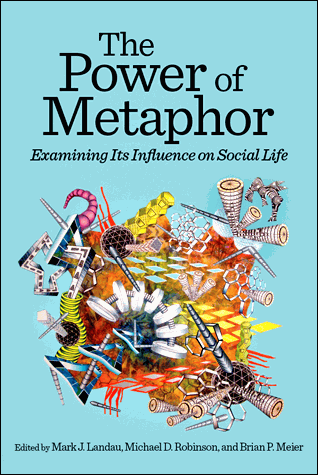Featured Books

Conceptual Metaphor in Social Psychology synthesizes over twenty-five years of in-depth research. Drawing from innovative experiments conducted around the globe, Landau shows conclusively that individuals and groups use metaphor—often unconsciously—to grasp abstractions, make judgments and decisions, communicate, and organize their behavior. Each chapter explores metaphor’s importance for understanding a major topic in social psychology: social cognition, motivation, culture, the self, interpersonal relationships, intergroup dynamics, politics, and health. What emerges is a powerful explanation of how social behavior is shaped by and reflected in our bodily functioning, cultural context, and language use.
Integrating insights from cognitive linguistics, anthropology, and personality, this book makes a compelling case that conceptual metaphor has a pervasive effect on human affairs. Researchers in social psychology will discover new ways to think about and investigate these related topics, while students of psychology will learn about an exciting development in understanding enduring questions about who we are and how we got that way.
Buy on Amazon

